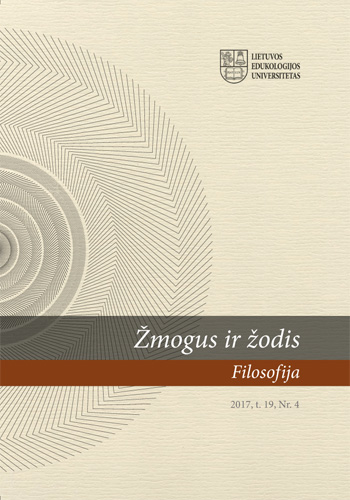Vidujybės kontekstualizavimas XX a. filosofijoje ir asmens tapatybė
Contextualization of the Innerness in the Philosophy of the 20th Century and Personal Identity
Author(s): Augustinas DainysSubject(s): Contemporary Philosophy, Structuralism and Post-Structuralism
Published by: Vytauto Didžiojo Universitetas
Keywords: innerness; contextualism; truth; personal identity; philosophical classicism;
Summary/Abstract: The article analyses the contextualisation of innerness that took place in the philosophy of the 20th century. The doctrine that enabled this process is called contextualism. There is a distinction between the contextualisation of innerness in the weak and strong contextualism. Weak contextualism explores various instances of contextual innerness, while strong contextualism seeks to formulate general methodological principles on the nature of contextual innerness and language. The position of philosophical classicism is stated as an alternative to contextualism; it brings back the truth and a person’s identity to philosophical thinking. According to the latter philosophical position, the identity of the philosopher is his truth. Although the problems of classical philosophy are reinstated, philosophical classicism avoids naïve realism and seeks to learn the lessons of Kant, Wittgenstein, and Deridda.
Journal: Žmogus ir žodis
- Issue Year: 19/2017
- Issue No: 4
- Page Range: 6-24
- Page Count: 19
- Language: Lithuanian

